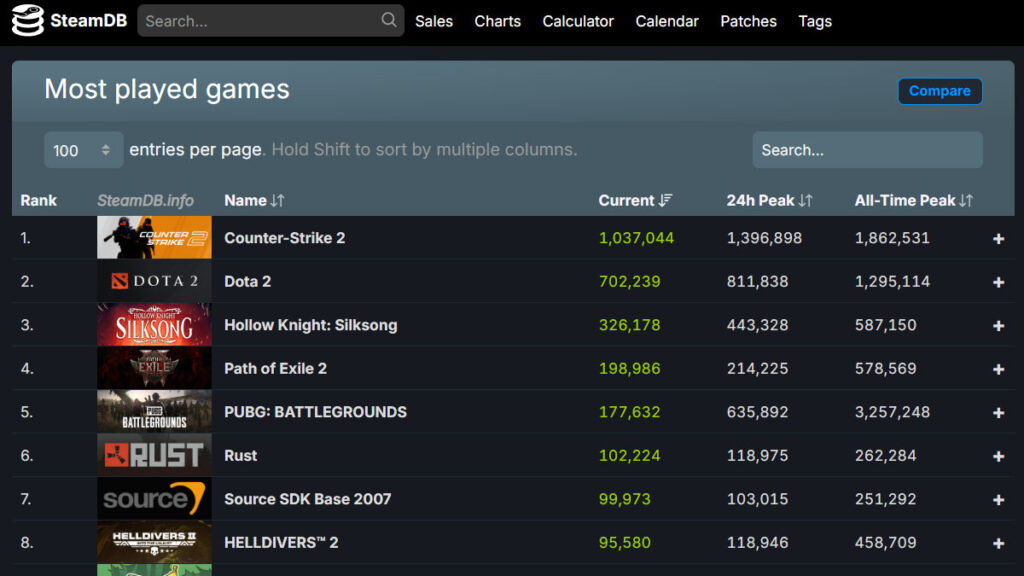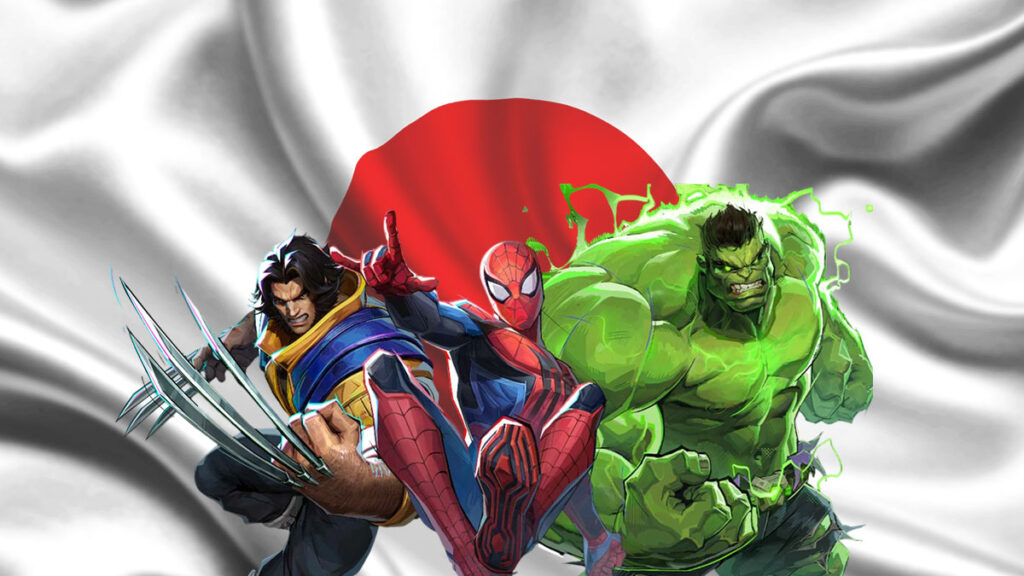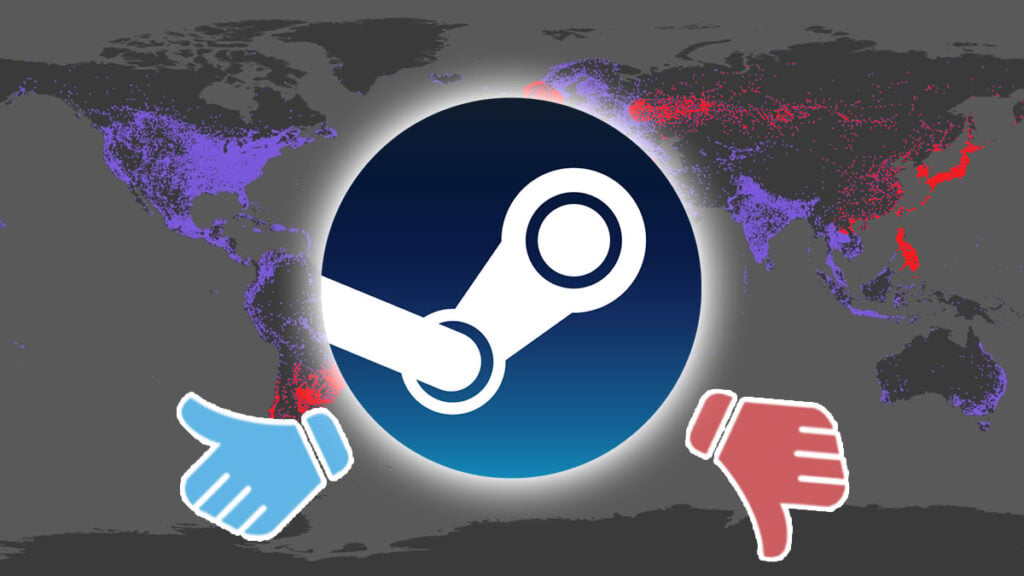Skip To...
Steam reviews have always been a messy mix of love letters, rage-fueled essays, and snarky memes. However, when taken together, those reviews become less of a noise, revealing interesting patterns and habits. Thanks to Steam‘s recent review language filter update, we can even pinpoint how different communities rate their favorite — or most hated — games. If you’ve ever wondered where the toxic PC Steam gaming circle gathers in full force, then continue reading below. The numbers don’t lie.
The Method: Combing Through Steam’s Top Played for Toxic Reviews

Our sample was randomly pulled from a mix of free-to-play and premium games that currently dominate SteamDB’s Top 50 Most Played list. That means hits like Counter-Strike 2, Dota 2, and PUBG, plus fresh entries like Umamusume, Monster Hunter Wilds, and Hollow Knight: Silksong. By mixing both, this quick breakdown should cover a wide slice of Steam’s largest active communities.
We then aggregated review data across all those games. Afterward, the data is compared to determine which communities leave the harshest reviews and which are the most forgiving.
| Paid Games | Free-to-Play Games |
|---|---|
| Counter-Strike 2 | Banana |
| Elden Ring: Nightreign | Bongo Cat |
| Grand Theft Auto 5 | Dota 2 |
| Hollow Knight: Silksong | Delta Force |
| Monster Hunter Wilds | Marvel Rivals |
| PUBG: Battleground | Team Fortress 2 |
| Rust | Umamusume Pretty Derby |
The Verdict: Who’s Steam’s Most Toxic Playerbase?
If we’re going purely by weighted percentage, Japan takes the crown for the ‘most toxic’ Steam users. Only 44% of Japanese-language reviews are positive, an outlier compared to every other community. China and Korea aren’t far behind — although they do have a much bigger volume of reviews. On the other side of the coin, Romania, Portugal, and Denmark can claim the spot of Steam’s happiest players.
Top 10 Most Content and Happiest PC Gamers

At the top of the positivity charts are Romanian players, with a staggering 93.4% weighted positive reviews. Portuguese (Portugal), Danish, and Brazilian players weren’t far behind. Even Vietnamese players clocked in at 90.1% positivity, despite having fewer total reviews. Clearly, some gaming communities are just happy to be able to play their favorite games.
“This is a really great strategy game, a competitive MOBA that requires skill. The female heroes are extremely beautiful :x” recommends N in their Dota 2 review in Vietnamese translated using DeepL.
“The story mode is awesome, but the online mode is a D**N SECOND JOB. You do things you don’t like with people you hate, only to end up earning peanuts and spending them on something you’ll never even get a chance to use. I recommend it!” joked Brazilian GTA 5 player GustavoKalashnikov.
| Rank | Language | Total Reviews | % Positive | % Negative |
|---|---|---|---|---|
| 1 | 🇷🇴 Romanian | 65,997 | 93.4% | 6.6% |
| 2 | 🇵🇹 Portuguese – Portugal | 123,988 | 93.0% | 7.0% |
| 3 | 🇩🇰 Danish | 60,231 | 91.3% | 8.7% |
| 4 | 🇧🇷 Portuguese – Brazil | 689,204 | 90.8% | 9.2% |
| 5 | 🇻🇳 Vietnamese | 20,200 | 90.1% | 9.9% |
| 6 | 🇸🇪 Swedish | 82,532 | 90.0% | 10.0% |
| 7 | 🇳🇱 Dutch | 32,885 | 89.3% | 10.7% |
| 8 | 🇪🇸 Spanish – Spain | 593,660 | 88.6% | 11.4% |
| 9 | 🇳🇴 Norwegian | 24,685 | 88.3% | 11.7% |
| 10 | 🇧🇬 Bulgarian | 14,832 | 87.0% | 13.0% |
Top 10 Most Toxic Steam Users

Now, for the least positive playerbases by weighted percentage? At the very bottom of the charts are Japanese gamers, with only 55.5% positives despite their small number of reviews. That’s barely half. Traditional and Simplified Chinese reviews don’t fare much better either. Compared to the rest of the world, these communities are consistently harsher, with lower patience for design decisions, monetization, and translation issues.
“Silksong Simplified Chinese translation team, or maybe just a lone person, have you ever received trust or praise in your life? If so, I think you’re lying. If not, that’s perfectly natural,” wrote Mr_Seconder in their Silksong review.
“Ranked matches are garbage. […] The current ranked matches have such terrible matchmaking that winning or losing isn’t fun. It’s just not right. Seriously, there must be bots in there, right?” complained Chloé in Japanese about Marvel Rivals.
| Rank | Language | Total Reviews | % Positive | % Negative |
|---|---|---|---|---|
| 1 | 🇯🇵 Japanese | 55,790 | 55.5% | 44.5% |
| 2 | 🇹🇼 Traditional Chinese | 134,121 | 57.4% | 42.6% |
| 3 | 🇨🇳 Simplified Chinese | 3,324,588 | 66.1% | 33.9% |
| 4 | 🇰🇷 Korean | 219,826 | 70.9% | 29.1% |
| 5 | 🇺🇦 Ukrainian | 116,193 | 79.1% | 20.9% |
| 6 | 🇷🇺 Russian | 4,439,839 | 80.1% | 19.9% |
| 7 | 🇩🇪 German | 350,646 | 81.5% | 18.5% |
| 8 | 🇮🇹 Italian | 43,003 | 82.6% | 17.4% |
| 9 | 🇹🇷 Turkish | 626,823 | 83.1% | 16.9% |
| 10 | 🇫🇷 French | 285,541 | 84.0% | 16.0% |
Then how about English-language players, you asked? Well, based on our aggregated review data, they sit somewhere in the middle of the spectrum. With roughly 83-84% positive reviews, the English Steam userbase is critical but balanced, willing to call out flaws but doesn’t turn them into nags. Not always, anyway.
Nevertheless, it’s important to note that Steam reviews are tagged by language, not nationality. A Japanese review might come from someone abroad using Japanese as their preferred Steam language. The same goes with English, where there are non-natives who feel more comfortable playing games in English.
And thumbs-downs aren’t always bad. Negative but constructive reviews can push studios to fix broken launches, tweak unfair difficulties, or even add player-requested features.










